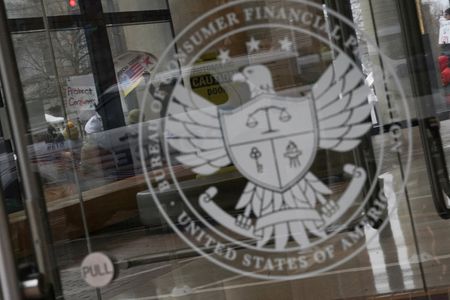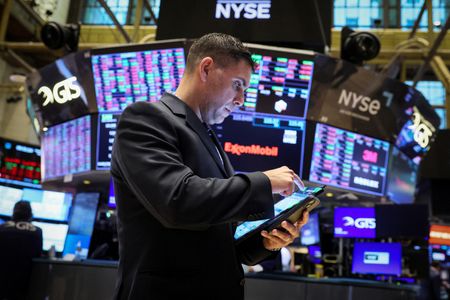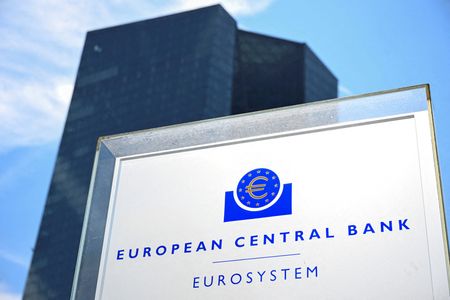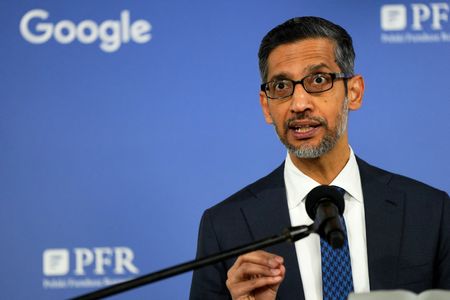By Mike Spector and Douglas Gillison
NEW YORK/WASHINGTON (Reuters) – The Trump administration’s idling of the Consumer Financial Protection Bureau (CFPB) left in limbo significant cases the agency brought against companies and large financial firms in the waning days of President Joe Biden’s time in office.
The CFPB in January sued Capital One, accusing the bank of illegally cheating consumers holding its flagship “high interest” savings account out of more than $2 billion by freezing their rate.
In December, the agency sued the likes of Walmart and big banks including JPMorgan Chase, Bank of America and Wells Fargo. The agency accused Walmart and a workforce payments company of forcing delivery drivers into using accounts that cost them more than $10 million in “junk fees.”
The lawsuit against the banks, meanwhile, said they failed to safeguard consumers from widespread fraud on payments platform Zelle. The agency also sued the company operating Zelle.
But the fate of those lawsuits, which have been filed in recent months, has been put into significant doubt following the abrupt and dramatic upheaval at the watchdog.
Russell Vought, President Donald Trump’s recently confirmed Office of Management and Budget director who is now the CFPB’s acting head, told its nearly 2,000 employees to stay away from the office and do no work, according to an email seen by Reuters.
“The enforcement actions, all of them, are going to be shut down,” said Chris Peterson, a University of Utah law professor specializing in consumer finance.
The agency could potentially withdraw the lawsuits, though federal judges overseeing them normally would have to approve any actions parties in the cases take.
Capital One did not immediately respond to a request for comment. The financial firm previously said it disagreed with the claims and would defend itself in court while expressing disappointment in what it described as a pattern of lawsuits coming from the agency before a change in U.S. presidential administrations.
Walmart, JPMorgan and Wells Fargo declined to comment. Bank of America did not immediately respond to a request for comment. Walmart previously rejected the CFPB’s allegations and accused the agency of failing to allow time for it to offer explanations and rushing to sue.
JPMorgan CEO Jamie Dimon has been critical of the CFPB and vowed to oppose measures he contends would not make banks safer. Bank of America said it opposed the CFPB lawsuit when it was filed, describing it as imposing huge new costs on banks and credit unions offering free Zelle service to clients. Early Warning Services, the company that operates Zelle, pointed to an earlier statement in which it called the case legally and factually flawed, and driven by political factors.
Billionaire Elon Musk, tapped by Trump to downsize the federal bureaucracy as part of the Department of Government Efficiency (DOGE), has been openly critical of the CFPB.
He is also making a push to offer consumer direct payment options on his social-media platform X. Visa agreed to partner with X on the XMoney Account the platform intends to debut later this year, X’s chief executive said in a social-media post in January.
“There is a direct, deep conflict of interest of overseeing the dismantling of the consumer protection financial regulator and starting up a large complex consumer financial business,” Peterson said.
DOGE and Musk did not immediately respond to requests for comment.
“The most recent communications from interim director Vought to the CFPB staff instruct them to halt work on all rulemaking, enforcement, investigation, settlement, guidance, and supervisory activities,” Mallory Sorelle, a Duke University public policy professor, said. “That pretty much encompasses all of the agency’s work to protect consumers.”
The CFPB has drawn criticism from Republican lawmakers and the financial sector that it is too powerful and lacks accountability since its inception in 2010.
The complaints escalated under Rohit Chopra, the agency’s most recent director during the Biden administration. Critics argued he tested the boundaries of legal activity at the agency with his aggressive policing of the financial sectors.
The agency’s supporters contend it has been a critical safeguard for consumers, reaping billions in repaid funds to wronged parties.
Senator Elizabeth Warren of Massachusetts, the top Democrat on the Senate Banking Committee who helped set up the agency, on Monday joined a crowd of protesters in front of the CFPB’s building. The CFPB is the one that “caught the crooks and made them give back so far $21 billion,” she said.
(Reporting by Mike Spector in New York and Douglas Gillison in Washington; Additional reporting by Suzanne McGee in New York; Editing by Pete Schroeder and Sandra Maler)










